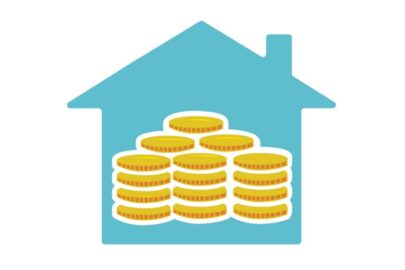In July, house prices rose by £700, or 0.2%, to an average £293,318, according to the latest house price index from LSL Property Services and Acadata.
This price is still £2,400 below that recorded in March 2016, immediately prior to the introduction of the 3% stamp duty surcharge.
On an annual basis, the rate of growth of prices to July 2016 for England & Wales was 5.5%, down from 5.7% in June.
This is the fifth month in succession in which the annual rate has fallen, although the 5.5% increase still represents a gain of £15,422 in average prices over the last 12 months.
Adrian Gill, director of Your Move and Reeds Rains estate agents, said: “Brexit may well have an impact on the housing market, but it’s not showing yet. Even when it does, there will be positive as well as negative influences on the market, which clearly has some strong long-term drivers for continued house price inflation.”
Peter Williams, chairman of Acadata, said: “Frustratingly it is still too early in the housing timeline for any definitive conclusions to be drawn about the effect on the UK’s property markets of the decision to leave the EU. Halifax in its HPI release this month stated ‘Overall, it remains too early to determine if there has been any impact on the housing market as a result of June’s EU referendum result’.
“Nationwide adopted a similar approach stating ‘This is the first month’s data following the EU referendum. However, it is important to note that in constructing the index we use data at the mortgage offer stage – this means any impact from the vote may not be fully evident in July’s figures, as there is a short lag between a buyer making the decision to purchase a property and applying for a mortgage’.
“Similarly Rightmove noted ‘it is in our opinion too early to draw any medium or long-term conclusions’. And as we stated last month ‘Given that the vote was not until June 23rd, and bearing in mind the gap between the decision to sell [a property] and the sale actually taking place, we may well have to wait until the end of August before we can start making conclusive statements about how the Brexit vote has influenced property sales’. Rarely has there been such unanimity among the index providers as to the current state of the housing market!
“Aside from the uncertainty generated by the referendum result, one of the other main factors still evident in the July market is the after-effect of the introduction of the 3% stamp duty surcharge on second homes and buy-to-let properties in April 2016.
“Housing transactions for Q2 2016 were 20% below 2015 levels, largely due to the high number of sales that were brought forward into March 2016 to avoid paying this additional tax. This meant that activity which otherwise would have taken place during the subsequent three months was absent, and the reduced sales that have been observed continued into July, albeit at a lesser rate. Moreover, we should note that in the rush to buy, cash buyers outnumbered mortgaged buyers by two to one.
“…the market was contracting pre Brexit and the question remains how will it perform post Brexit vote (and ultimately on exit)?”
